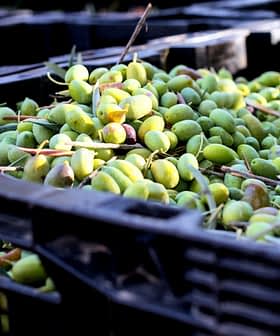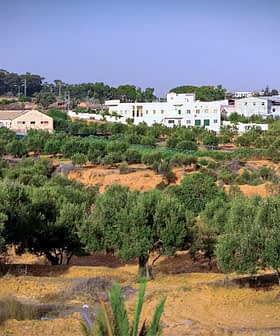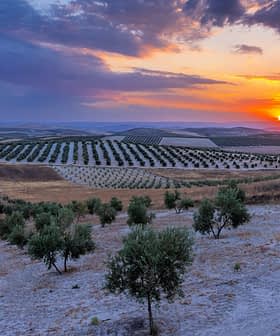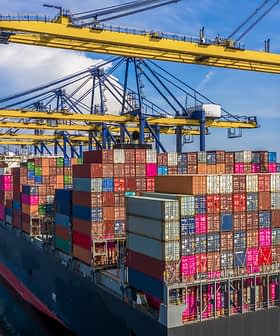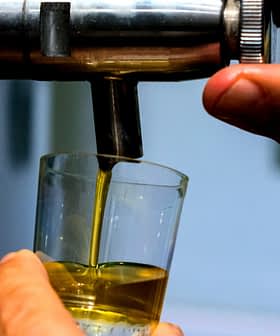Italian Olive Oil Association Meets Over Fresh Market Data
ASSITOL, the Association of the Italian Oil Industry, held a conference in Rome to review the 2010 olive oil market volume and discuss challenges faced by members, including the new EU regulations for maximum allowable alkyl esters. The conference speakers included representatives from ASSITOL, the University of Udine, UNAPROL, and other industry experts, who discussed the importance of controls for ensuring high quality products and the impact of recent EU labeling rules and delays in olive oil shipments at ports.

ASSITOL, the Association of the Italian Oil Industry, representing packagers of olive oil and seed oils, held a conference to review 2010 olive oil market volume and give indications about the early months of 2011. Following the review, the press heard from a panel of experts discussing some of the challenges faced by members. The meeting was held on 15 June in Rome, at the Minerva hotel. It was a fitting place for the conference since Minerva (Athena to the Greeks) was credited with the creation of the olive tree in the ancient world.
Claudio Ranzani, Director General of ASSITOL, went through the 2010 figures which were more positive for the domestic market and extra virgin than for the export market and other grades of olive oil. Members, which include such well-known companies as Bertolli and Colavita, packaged about 250,000 tons of olive oil last year. Most of that, or 67 percent, was extra virgin olive oil; olive oil represented 29 percent of the total; and the remaining represented pomace oil. The oil the companies packaged was approximately 60 percent imported and 40 percent domestic. Total tonnage for 2010 fell by 1 percent from 2009 levels, with lower cost olive oil depressing the total.
Greater sales of the more valuable extra virgin, and stronger pricing made up for the slip in tonnage. Mr. Ranzani shared a slide with interesting data for the export of niche extra virgins. For the export markets, DOP/IGP was up a nice 21 percent over 2009, Italian extra virgin was up a more modest 4 percent, while organic was down 8 percent. ASSITOL companies generated one billion euros last year.

The new EU regulations for maximum allowable alkyl esters is seen as a positive by ASSITOL. The audience heard from Professor Lanfranco Conte from the University of Udine, who spoke about the genesis of the alkyl ester tests and the importance of ring tests. He was particularly concerned with the lack of funding for university research, too few students, and what this will mean for the future.
Ranieri Filo della Torre, Director of UNAPROL, a consortium of 550,000 olive growers, spoke about controls necessary for ensuring high quality products. He made reference to the recent tragic deaths from e‑coli in North Germany to underscore the importance of clear supply chains to insure safety. Other speakers spoke about mercurial EU labeling rules, and the recent stopping of olive oil shipments at the ports. Under the regime of the new agriculture minister, Saverio Romano, shipments have been stopped for testing, delaying the cargo for weeks, resulting in furious clients.
In the European Union, Germany, France, and Britain are the biggest importers of oil from ASSITOL companies. Outside of the EU, the countries are the United States, Japan, and Australia. January 2011 export numbers have improved by 30 percent over January 2010.
One conference attendee, Mauro Meloni, an extra virgin consultant, in casual conversation voiced his pleasure with Michelle Obama who is focusing on improving the American diet. The First Lady has shared recipes using olive oil. He was doing some math, “If U.S. citizens were to eat 23 grams or two tablespoons of extra virgin olive oil every day, there wouldn’t be enough.” And with his smile, you could see it would be a problem he’d like to have.
Conference speakers included Palmino Poli, president of ASSITOL; Claudio Ranzani, director general of ASSITOL; Lanfranco Conti, University of Udine, Angelo Cremonini, President of “Olio di Oliva” Group; Domenico Mastrogiovanni, CIA; Vincenzo Peluso, AGEA; Giuseppe Di Rubbo, MIPAAF-POCOI IV; Raniero Filo della Torre, Director of UNAPROL; and Giorgio Dell’Orefice, Agrisole.
.
With thanks to Silvia Cerioli, ASSITOL Press Officer



